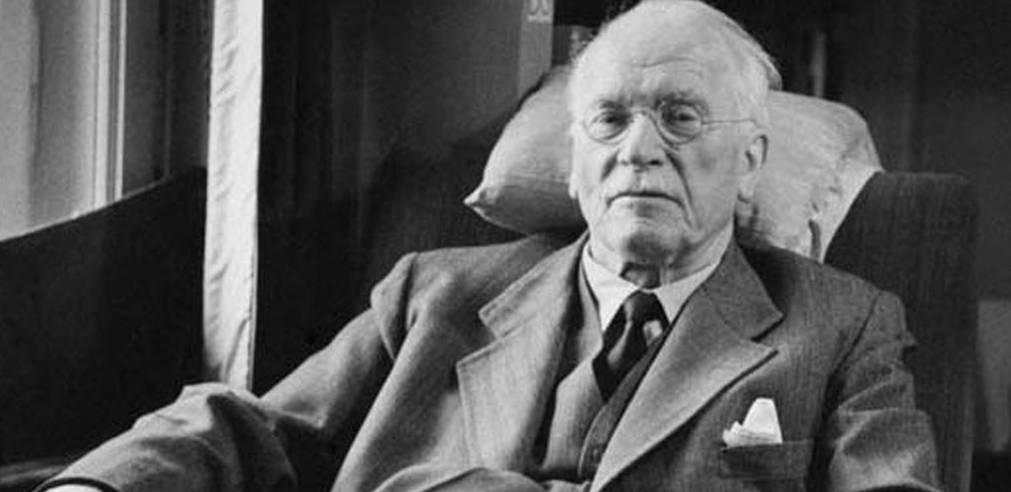Economics presents itself as a rational science dealing with objective measures and quantitative approaches, but astute observers have long recognized its suffusion with magical, fantastic, irrational, and unconscious elements. That makes it fertile ground for those who study human psychology.
Contemporary discussions of economics and psychology focus mostly on behavioral economics, while psychoanalysis, the branch ostensibly dedicated to heightening awareness of the unconscious, has made far fewer appearances in the conversation. More than half a century ago, thinkers like Norman O. Brown and Herbert Marcuse gained wide appeal with their dives into the hidden recesses and unconscious motivations of economics, but as Sigmund Freud began to fall out of favor with academics in the 1960s, psychoanalytic approaches have been pushed aside or rebranded – despite the fact that a great deal of recent scientific research supports Freud’s concept of the unconscious.
As we grapple today with economic systems that seem ever more destructive to human wellbeing, might it be time to reconsider whether psychoanalysis has something useful to say about the dismal science?
The name of Swiss psychiatrist Carl Jung, redolent of mystical and esoteric concerns, would probably sound particularly out of place at an economic conference. But in his book For Love of the Imagination: Interdisciplinary Applications of Jungian Psychoanalysis, psychoanalyst and psychology professor Michael Vannoy Adams shows how Jung’s special attention to images — to making them conscious and understanding their meaning and influence — can help us glean what lies in the shadow of contemporary capitalism.
Adams’ starting point is Adam Smith’s image of the invisible hand, that legendary representation of the unseen force that arranges the economically self-serving actions of individuals into collective benefits. In Adams’ view, the invisible hand is not only a key idea in economics, but “the most important image of the last 250 years” — as paramount to capitalism as the hammer and sickle image is to communism. In Jungian terms, it is archetypal. “No other image so pervades, so dominates, the modern world,” asserts Adams.
He points out that as images go, the invisible hand is an odd one. You can’t really visualize it. Nevertheless, as Adams reminds us, the invisible hand image was circulating long before Smith used it in works ranging from Homer to Voltaire to indicate ghostly or divine forces that intervene in human affairs. Literary scholars note that around the time of Smith’s usage, invisible hands were popping up in gothic novels to slam doors and otherwise move the human plot along. Adams points to an especially evocative version of the hand cited in A.O. Hirschman’s The Passions and the Interests – the reproduced illustration of a celestial, immaterial hand squeezing a human heart beneath the motto, “Affectus Comprime” or, in Hirschman’s translation, “Repress the Passions!” A psychoanalytic image if there ever was one.
As Adams indicates, when Smith first mentions the hand in a treatise on astronomy (in an essay unpublished during his lifetime but probably written before 1758), it was a mythological image — the hand of Jupiter moving celestial bodies in the heavens. Later, this hand becomes an economic hand, mentioned first in the Theory of Moral Sentiments in 1759 and then again in The Wealth of Nations in 1776.
Smith construes the economic invisible hand as the influence that leads individuals who pursue a private interest to promote the public good without realizing it. In the Theory of Moral Sentiments, in outlining a case in which a rich landowner ends up employing laborers through his spending on luxury, Smith illustrates that the hand helps the wealthy, in spite of their “insatiable desires,” to share some of their wealth with the poor. Later, in The Wealth of Nations, he describes the hand in a section on trade, suggesting that it guides merchants and manufacturers acting in their own interest for profit to unintentionally produce positive outcomes for all.
Thus, by some audacious magic, the touch of the invisible hand transmutes selfishness into a virtue. This, as Adams puts it, constitutes a “moral inversion” – a turning upside down of a long tradition of viewing selfishness as one of the least desirable human traits. As Adams sees it, the effects of this inversion on human affairs have been profound.
Through Adams’ Jungian analytical lens, the invisible hand can be seen wiping away guilt. Under its influence, a person can feel innocent while acting greedily and indulging in what was previously known as one of the seven deadly sins. In Jungian terms, what happens when we do not recognize our guilt is that we tend to project it onto others as a shadow, the emblem of our unresolved moral conflicts. In free-market systems, the poor are made culpable, blamed for their situation and failure to act in ways that increase their wealth. The poor are assigned guilt for the self-interested actions of the rich.
Adams notes that the hand serves a religious function, too, namely in its representation of the god of the market, the god long worshipped by economists. He views this god as deus absconditus – one that, like the form of the Biblical Yahweh, is hidden and concealed. In another sense, deus absconditus is a god who is absent when people are in extreme trouble. Or a god that is unknowable or incomprehensible. Why, for example, is an invisible hand even necessary if selfish behavior naturally produces beneficial social results?
Adams notes that like Yahweh, the image of the invisible hand privileges the unseen over the seen, the abstract over the embodied, and the intellect over the senses. This function seems to pervade economics, where practitioners have often fallen in love with abstract models that have blinded them to what can be readily seen in reality, particularly the poverty and suffering of actual embodied, living beings. The hand as market god also becomes a deus ex machina like the one lowered onto the stage in ancient dramas to decide the final result of the play, or, more broadly, the mechanism that brings about a solution to a seemingly insoluble problem. In this way, the invisible hand manipulates the economy both divinely and mechanistically. Whatever the economic problem, however thorny, the invisible hand is the only solution: TINA – There Is No Alternative. To speak out against the god of the market is to have your credibility questioned, to commit heresy. For worshippers of the hand, the market has infinite wisdom to behave the way it does.
The market god, observes Adams, is a jealous god, and like Yahweh, will have no other gods before him. If the government seeks to intervene in the divine and benevolent market, then it must be a devil. This image of the market god, according to Adams, allows economists to repress the actual experience of economic crises by summoning the mantra that governmental intervention is never necessary. Market imperfections are thus consigned to the oblivion of what Adams calls the “economic unconscious.” The monopoly of the market god crowds out other images, warns Adams, images that might help orient us towards values like selflessness.
Adams points out that in obviating the necessity of government regulation, the hand dispenses with any human accountability for the economy. Eventually, in the extreme vision of neoliberalism, every inch of human society is in the grip of the hand, with the privatization of everything from medicine to education. The market renders governments unnecessary except to protect the interests of the capitalists, which leads to vast infusions of money from corporations and rich individuals to control the state and enhance their power. The invisible hand in unregulated markets seems to do the opposite of what Smith described – guiding activity that tends to benefit only a few.
Like the Global Financial Crisis of 2007-8, the coronavirus pandemic has discredited the ideology of the invisible hand, illustrating how relentlessly selfish activity produces not social benefits, but social destruction. The Covid crisis revealed how the degeneration of public services renders capitalist societies more vulnerable to disruption and less resilient. The visible hand of the government has returned through fiscal stimulus, benefits to unemployed workers, and monetary policy. There is apostasy afoot, but that does not mean the market god is defeated. Witness the current flurry of arguments coming from many Republicans and, recently, Jeff Bezos, blaming high inflation on Biden’s American Rescue Plan and government stimulus checks, as if supply chain problems and monopolistic practices have nothing to do with it. As if belief in the unquestioned wisdom of the market god doesn’t result in billions of people suffering a mean and miserable existence.
There is plenty of talk in the air about the possibility of recession – perhaps we should also be concerned about ongoing repression. In 1957, Jung issued this warning about the failure to recognize the shadow and understand the operations of the unconscious:
“One can regard one’s stomach or heart as unimportant and worthy of contempt, but that does not prevent overeating or overexertion from having consequences that affect the whole man. Yet we think that psychic mistakes and their consequences can be got rid of with mere words, for “psychic” means less than air to most people. All the same, nobody can deny that without the psyche there would be no world at all and still less a human world. Virtually everything depends on the human soul and its functions. It should be worthy of all the attention we can give it, especially today, when everyone admits that the weal or woe of the future will be decided neither by the attacks of wild animals nor by natural catastrophes nor by the danger of worldwide epidemics but simply by the psychic changes in man.”
Early psychoanalyst Otto Gross, a close associate and influencer of Jung, argued that investigations of the unconscious are the necessary groundwork for any kind of revolution or moral restoration. He points us to the project of liberating the repressed values of mutual aid and cooperation that human beings are born with. Only then can we wave goodbye to the invisible hand.






